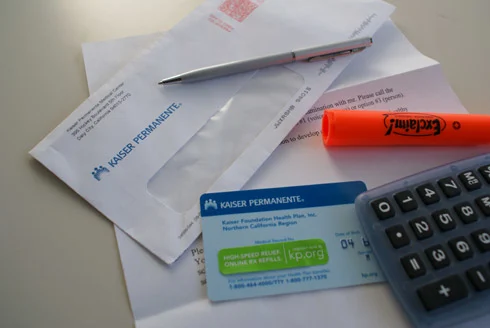
Get rid of your debt faster with debt relief
Choose your debt amount
Or speak to a debt consultant 844-731-0836
- 3 min read
How to Consolidate My Mortgage Bills
Do you have two or more mortgages? A home mortgage and a home equity loan or a home equity line of credit? More mortgage bills than you can keep track of? Then you should consider mortgage consolidation.
Home loan consolidation isn't possible for everyone, but if it is possible for you, you could reduce your total monthly payments, reduce your interest rate, and simplify your payments every month. You'll also ensure that you don't miss out of any tax deductions because you couldn't keep track of all the interest statements. Here are the basics you need to know if you're considering consolidating.
What is mortgage consolidation?
Mortgage consolidation is actually mortgage refinance. In most cases, you'll refinance both your first and second mortgages into a single first mortgage. If you have a home equity line of credit with a balance, you can opt to refinance it with the other loans, or you can keep it separate so you can continue to tap the funds when necessary.
How do I qualify to consolidate my mortgage bills?
Follow these four steps to determine whether you qualify for consolidation:
- Total up the balances of all the home loan bills you're considering consolidating.
- Determine the approximate value of your home. Use a real estate Web site or Zillow.com to find sales within the last month in your local area for homes similar to yours. If you can't find any, check the prices for homes currently for sale. Use that to determine a ballpark figure. If your total balance is 80% of that figure or less, you should be able to refinance. If it's more than 80% but less than 100%, you may qualify at a higher interest rate. If you owe more than 100% of the value of your home, you probably won't qualify to refinance.
- Check your credit reports and score. Remove any errors on your report.
- Apply for a mortgage refinance loan at a few banks. Carefully review the fees, interest rate, and costs for each offer, and then make your selection.
How is mortgage consolidation different from other forms of consolidation? Unlike many other forms of loan or bill consolidation, you're only including home loans in the refinance. Because of this, you shouldn't see an increase in your total loan balance, except a few thousand dollars if you roll closing costs into the loan. Other forms of consolidation add unrelated debts to your mortgage balance, which increases the total loan balance.
You may pay more fees with a home refinance than with other forms of debt consolidation, however. Home refinance loans require appraisals and other closing costs that student loan consolidations and credit card balance transfers don't.
Does home refinance put my home at risk?
If you're currently able to afford your payments for all your home loans, then mortgage consolidation via a home refinance won't put your home at additional risk for default. Consolidating all your home loans into one loan with one monthly payment may even save you a little money every month.
However, if your home loan balances total more than the value of your home and you can't afford the current payments, then your home may already be at risk.
If you have too many mortgages and think you're probably overpaying on interest, consider mortgage consolidation today. You'll be glad you did.

Get rid of your debt faster with debt relief
Take the first step towards a debt-free life with personalized debt reduction strategies.
Choose your debt amount
Or speak to a debt consultant 844-731-0836
Recommended Reads







